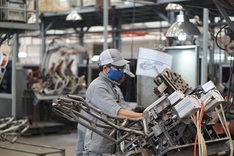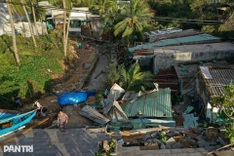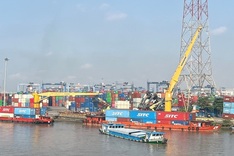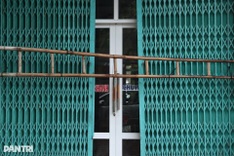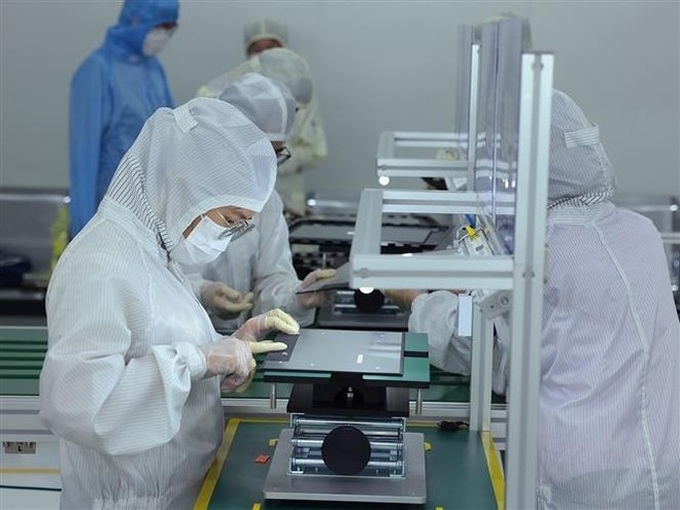
Assembling export-bound laptops at Heesung Electronics Vietnam Co., Ltd.’s factory in Trang Due Industrial Park, An Duong district, Hai Phong city. (Photo: VNA)
Of the total, newly registered capital accounted for nearly USD 9.3 billion across 1,988 new projects, according to the Ministry of Finance's Foreign Investment Agency (FIA). Adjusted capital contributed approximately USD 8.95 billion via 826 existing projects, while investment through capital contributions and share purchases reached nearly USD 3.3 billion.
FDI disbursement also continued its upward trend, reaching an estimated USD 11.7 billion, up 8.1 per cent from the same period last year.
The FIA said the surge reflects strong investor confidence in Vietnam’s business environment, with many foreign enterprises expanding the scale of their existing projects.
The manufacturing and processing sector attracted the largest share of FDI, drawing nearly USD 12 billion, or 56.5 per cent of total registered capital, up 32 per cent year-on-year. Real estate ranked second with over USD 5.1 billion, accounting for 24 per cent and more than doubling compared to the same period last year.
Other sectors attracting notable investment included science and technology (USD 1.2 billion) and water supply and waste treatment (USD 903 million).
Singapore remained the largest investor with over USD 4.6 billion, making up 21.4 per cent of total FDI, though this represented a 25 per cent drop year-on-year. South Korea followed with more than USD 3 billion, accounting for 14.3 per cent and doubling compared to the first half of 2024.
China contributed over USD 2.5 billion, Japan USD 2.2 billion, and Malaysia USD 1.6 billion. Malaysia notably climbed 20 places in the investor rankings due to a USD 1.1 billion capital adjustment for the Yen So Park construction project in Hanoi in May.
Sweden rose 59 positions, driven by a new USD 1 billion investment in a polyester fabric recycling complex in the Economic Zone in Binh Dinh Province (now Gia Lai Province) in June.
By locality, Hanoi led with nearly USD 3.7 billion in registered capital, representing 17 per cent of the national total and nearly 2.8 times higher than the same period last year. Bac Ninh and Ho Chi Minh City followed with approximately USD 2.7 billion each, accounting for 14.6 per cent and 12.6 per cent, respectively.



